| Abstract | As biologists increasingly embrace mathematical modeling techniques, many scientists and science educators are calling for the inclusion of mathematical and computer modeling in biology curricula (Bialek & Botstein, 2004; Gilbert, 2004; Goldstone, 2006; May, 2004; Metzger & Zare, 1999; NRC, 2003). In addition to preparing students for the changing discipline, curricula based on models and modeling can potentially provide opportunities for students to engage with sophisticated themes surrounding the nature of scientific knowledge by highlighting the role models play in knowledge creation and evaluation. However, education research suggests that undergraduate students struggle with epistemological themes such as these, often holding simplistic views of scientific knowledge as the end-product of a linear “Scientific Method” (Windschitl, Thompson, & Braaten, 2008). Thus, a shift towards model-based curricula creates a need to understand how to support opportunities for learning as well as address a new set of curricular challenges. In this study we examine the ways in which a yearlong NSF-sponsored training program, Collaborative Learning at the Interface of Mathematics and Biology (CLIMB), was able to support students’ engagement with challenges of model construction and evaluation. We conducted an extended in-depth qualitative study of the CLIMB students, faculty, and curriculum. We collected the following data sources: questionnaires, semi-structured interviews, field notes of group problem solving sessions, video of group problem solving, students' journal entries, and written work (both group and individual). We relied on triangulation among these data sources to uncover important themes relating to the generation and evaluation of knowledge from mathematical models. We report on both the level of sophistication with which students were able to engage with these themes and the particular features of the CLIMB curriculum that were likely to have supported students’ epistemological development. We present a conceptual framework of modeling curricula that includes the importance of explicit faculty discourse, task structure, and the opportunity for collaborative problem solving in helping support students’ conceptualization of models as important components of biological research. We also display evidence that students were able to identify criteria for constructing and evaluating scientific models in practice as they worked as a cohort to solve problems. This work has important implications for the structure of biology curricula that foreground mathematical modeling. It suggests that an emphasis on modeling may create a rich context in which students can expand their repertoires with respect to the nature of scientific knowledge and the ways in which it is produced in practice. |
|---|

